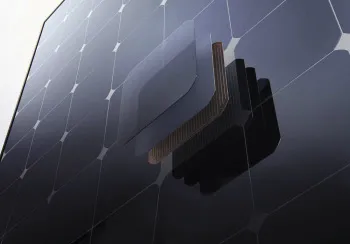Daily information: SunPower and Maxeon split, Bulgaria to host 400 MW of PV
- SunPower and also Maxeon Solar Technologies completed their strategy to split into two independent entities, while Austrian solar designer Energy BG 1 exposed plans to develop a significant unsubsidized solar project in Bulgaria.

SunPower and Maxeon Solar Technologies have lastly completed a tactical transaction they introduced last November to separate into two independent public firms. "Now is the correct time for this tactical spinoff, enabling both SunPower and Maxeon to buy crucial programs to drive their future lucrative growth," stated SunPower CEO Tom Werner. Jeff Waters will function as CEO of Singapore-based Maxeon Solar, which has panel as well as cell factories in France, Malaysia, Mexico, and also the Philippines. Concurrent with this transaction is an equity financial investment of $298 million right into Maxeon by veteran partner Zhonghuan Semiconductor, according to Werner's blog.
Power BG 1 intends to develop a 400 MW solar power plant in Haskovo district, southerly Bulgaria. According to regional media electrical outlet Haskovo.net, the solar plant will use yearly power generation of 560 GWh on a website extending 400 hectares. The project will certainly offer electrical energy to unspecified consumers under a personal power purchase contract, the news electrical outlet claimed. Upon completion, the center will certainly come to be the nation's biggest solar plant and also the initial brand-new PV selection to be developed given that the development of large-scale solar was halted in Bulgaria with the discontinuation of the feed-in tariff system in 2013. Ever since, only a few megawatts of household PV have actually been linked to the national grid.
Shiv Nadar University researchers in India have manufactured sulfur-rich copolymers from industrial waste as an alternative cathode material for Lithium-sulfur (Li-S) batteries. As soon as in manufacturing, the modern technology will certainly make Li-S batteries cheaper as well as more lasting, while providing to 3 times much more power density and also far better intrinsic flame-retardant buildings than the Li-ion alternatives that are presently offered for everyday usage. The scientists used byproducts from the oil market (sulfur), agro-waste components, copolymers such as cardanol (a by-product of cashew nut handling), as well as eugenol (clove oil) as cathodic products. Making use of cardanol for sulfur-based frameworks to produce cathode materials resulted in enhanced ability retention (amongst the highest possible charge capabilities reported) and also longer battery life in a significantly smaller battery unit. Eugenol copolymer (derived from clove oil) is environmentally sustainable, halogen-free, flame-retardant, and also is much less combustible, making the battery much safer to utilize.
Also read

